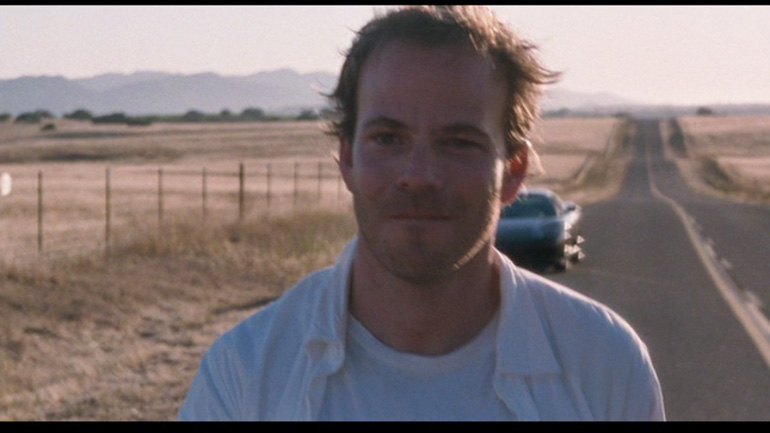Gotham Diary:
Somewhere
Monday, 25 July 2011
I just watched Sofia Coppola’s Somewhere. Long before it ended, I wondered what I would do when it did. I was worn out by all the suspense — was something bad going to happen? It seemed unlikely, but there was nothing leisurely about the long, still shots.
At the end, Johnny Marco (Stephen Dorff)Â walks away from his car (keys still in the ignition) and, presumably, from his life as a big Hollywood movie star. A long visit from his teenaged daughter (Elle Fanning) has left him burdened with the sense that his life is nothing. And no wonder! I’d had that impression since the movie began. I was beginning to think that my life was nothing. After all, I was the one sitting in my easy chair in the middle of the afternoon watching a movie.
It’s true that I wanted to see Somewhere. I’ve been waiting to be in the right mood for the sort of picture that Somewhere turns out to be — a picture where something bad happening might be a welcome development. It’s not that Somewhere is boring. No, no, no. I didn’t develop an undergraduate crush on Antonioni’s Italian films of the Sixties because I craved action movies. Somewhere is almost thrilling, as I say, because its look at the essentially passive existence of a movie star is so intense that every little thing that Johnny actually decides to do seems to render him vulnerable and exposed to catastrophe.
Johnny is a modest, unexceptional man who happens to be very good looking. His talent is not really a craft that requires development. He tells a fan that he never studied to be an actor. He tells a Russian journalist that his workout routine is “the basics.” Johnny doesn’t presume on his celebrity; his instinct is to slink away from it. His unlimited access to women probably brings with it an unlimited access to complication. He is an utterly accidental father, amazed to find that his daughter is an accomplished ice dancer (she’s been studying it for three years, but he seems to have missed that). A friend counsels him to volunteer at something, but he sees through this: he would just be filling up the hours. If it weren’t for that face, Johnny would be a small-town loser, forever dependent on whatever family he managed to hold on to. Sometimes he is so bored that you wonder if ennui can give you a heart attack or a stroke. He drives an assertive muscle car and he hires pole dancers to entertain him in his suite at the Chateau Marmont. Staying at the Chateau Marmont is clearly the most imaginative thing that Johnny does. At the end, he checks out. Maybe it’s too interesting.
Not once do we see Johnny on a set. The work-related scenes are all tangential. There’s a photo shoot with a costar who insults him. There’s fearsome session with special-effects guys who create a mask that ages him unto sheer unrecognizability — a ripe memento mori if ever there was one. There’s a cheesy awards ceremony in Milan. Evidence of Johnny’s celebrity accumulates slowly, tilting the balance away from the strong loser impression toward something else: Johnny is lost. It seems unlikely, despite the gesture of renunciation at the end, that he will ever find his way.
When it was over, what I did was take some laundry downstairs and collect the mail. I read a few more paragraphs of Diarmaid MacCulloch’s piece in the LRB about Jerusalem; I’m very nearly done with his Christianity and will have it finished before dinner time. We’re going to eat out this evening, although Kathleen hasn’t decided where. Tomorrow, I’ll be straightening the apartment and fixing dinner for some friends with well-tune palates — wish me luck! I cannot imagine having nothing to do. But now I know what it looks like, at the deluxe end.

